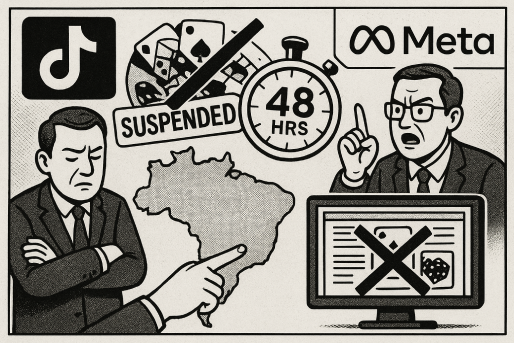TikTok and Meta Face Global Scrutiny Over Gambling Ads

TikTok has stopped running advertisements tied to real money gambling in the Philippines, a decision prompted by increasing pressure from regulators over digital gambling risks. The suspension, effective immediately, was confirmed this week by Department of Information and Communications Technology (DICT) Secretary Henry Aguda.
Calling the move a “significant win for digital safety,” Aguda emphasized the importance of cooperation between the public and private sectors. “It shows that even major global platforms are willing to join us in our cause,” he stated in Filipino. “Through Digital Bayanihan, we are proving that when the government, private sector, and the people work together, we can ensure that the internet is not only fast and affordable, but also safe and responsible.”
TikTok acknowledged the development, affirming its commitment to working closely with Philippine regulators to safeguard its users. The platform pointed out that its advertising policies already included strict requirements, such as license verification and adherence to age restrictions. Currently, gambling-related ads in the Philippines are permitted only for users 25 and older and require clearance from a TikTok sales representative.
While fantasy sports ads are allowed under these conditions, most non-casino game promotions remain restricted. Social casino games that do not pay out real-world rewards may be promoted to users aged 18 and above, provided the ads clearly indicate that no actual prizes are involved. For now, all real money gambling ads will remain on hold while TikTok awaits further guidance from authorities.
Push for Broader Online Gambling Ban
Despite TikTok’s action, some officials argue that a wider ban is needed. Mamamayang Liberal Party-list Representative Leila de Lima reiterated her call for a total prohibition on online gambling during a recent budget hearing for the Philippine Amusement and Gaming Corporation (PAGCOR).
“It is a good development that the links to online gambling have been removed from e-wallets, but this is not enough. They will always find ways to entice Filipinos through so many platforms,” De Lima stated.
She also criticized the notion that eliminating online gambling would harm government revenue streams, particularly those allocated to healthcare, arguing that the addictive nature of both regulated and unregulated platforms poses significant social risks.
PAGCOR chairman Alejandro Tengco admitted that many Filipino users struggle to distinguish legitimate operations from illegal services and stressed the need for alternative sources of funding that do not put public welfare at risk.
Brazil Orders Meta to Act on Illegal Ads
In Brazil, regulatory scrutiny intensified as Meta was instructed to take down unauthorized gambling promotions across its platforms, including Facebook and Instagram. The Attorney General’s Office (AGU) issued Meta a 48-hour deadline to comply, citing multiple instances of ads from companies lacking the required local authorization.
This enforcement stems from Ordinance 1,207, enacted in July 2024, mandating that all betting firms secure approval from the Ministry of Treasury before advertising in the country. The AGU also noted that operators running without authorization could be associated with criminal activities, such as fraud, tax evasion, and money laundering.
Additionally, the AGU referenced a ruling from Brazil’s Supreme Federal Court in July, which holds platforms accountable if they fail to promptly remove illegal paid content.
Meta responded by stating that its policy permits gambling ads only in jurisdictions where such promotions are legal and that it is continually working to enhance compliance measures. However, the AGU criticized the company for what it described as persistent “flaws” in its systems and warned of potential legal action should the issues remain unresolved.
Source:
TikTok Halts Gambling Ads in PH, Brazil Demands Meta Remove Illegal Betting Content, lcb.org, August 24, 2025








